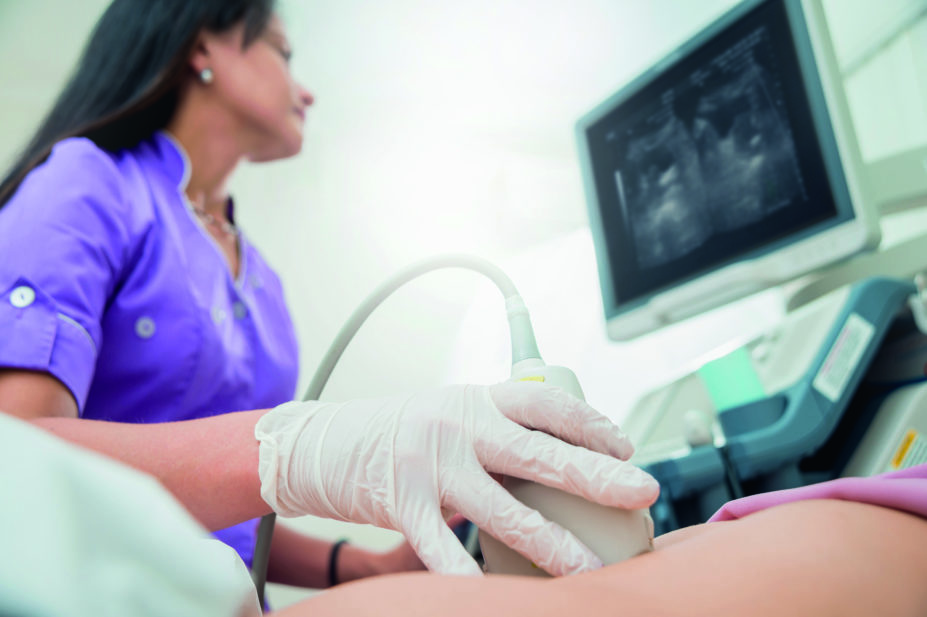
Shutterstock.com
Many classes of commonly prescribed antibiotics, including macrolides, quinolones, tetracyclines and sulfonamides may be associated with an increased risk of miscarriage during the first 20 weeks of pregnancy, a Canadian research study has concluded.
In the analysis, which matched data on 8,702 women who had a clinical diagnosis of miscarriage with 87,020 controls, the macrolide, erythromycin, was not associated with an increased risk, nor was nitrofurantoin — a common treatment for urinary tract infections during pregnancy.
To calculate the associated risk, the researchers compared prescriptions for antibiotics given between the first day of gestation to the date of miscarriage, with women at the same stage of gestation who had taken no antibiotics.
They also compared different classes of antibiotics with the use of penicillins or cephalosporins.
In all, 1,428 (16.4%) cases were exposed to antibiotics during early pregnancy compared with 11,018 (12.6%) out of the control group.
Once adjusted for potential confounding factors, such as age and other health issues, they found azithromycin to be associated with a 65% increased risk of miscarriage before 20 weeks, (odds ratio [OR] 1.65, 95% confidence interval [CI] 1.34-2.02; 110 exposed cases); clarithromycin was associated with a twofold increased risk, (OR 2.35, 95% CI 1.90-2.91; 111 exposed cases); and metronidazole was linked with a 70% increased risk (OR 1.70, 95% CI 1.27-2.26; 53 exposed cases).
In addition, sulfonamides (OR 2.01, 95% CI 1.36-2.97; 30 exposed cases), tetracyclines (OR 2.59, 95% CI 1.97-3.41; 67 exposed cases) and quinolones (OR 2.72, 95% CI 2.27-3.27; 160 exposed cases), were also found to be associated with an increased risk of miscarriage before 20 weeks.
The results were similar when compared against use of penicillins and cephalosporins, the Canadian Medical Journal reported (online, 1 May 2017)[1]
.
However, the researchers pointed out that although they tried to account for factors that could influence any link, they could not completely rule out severity of infection based on the data they had, although they did consider variables such as hospital admission.
Anick Bérard, study leader from the Faculty of Pharmacy at the Université de Montréal, Montréal, Quebec, says: “Infections are prevalent during pregnancy. Although antibiotic use to treat infections has been linked to a decreased risk of prematurity and low birth weight in other studies, our investigation shows that certain types of antibiotics are increasing the risk of spontaneous abortion, with a 60% to two-fold increased risk.
“Given that the baseline risk of spontaneous abortion can go as high as 30%, this is significant. Nevertheless, the increased risk was not seen for all antibiotics, which is reassuring for users, prescribers and policy-makers,” she adds.
Andrew Thomson, a spokesperson for the Royal College of Obstetricians and Gynaecologists, says he found the research interesting but highlights that further studies are required to determine whether pregnancy loss is caused by the antibiotics or by the infection for which the antibiotic is given.
“It is reassuring to note that many of the antibiotics that are commonly used in early pregnancy, including the penicillins, cephalosporins, erythromycin, and nitrofurantoin, have not been associated with an increased risk of miscarriage,” he says.
References
[1] Muanda FT, Odile S & Bérard A. Use of antibiotics during pregnancy and risk of spontaneous abortion. CMAJ 2017;189:E625-33. doi: 10.1503/cmaj.161020


